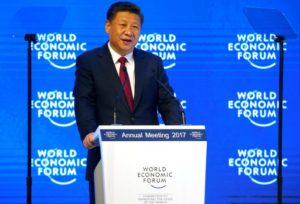Refugees Detained at U.S. Airports; Trump Immigration Order Is Challenged
By NICHOLAS KULISH and MANNY FERNANDEZ / JAN. 28, 2017
President Trump’s executive order closing the nation’s borders to refugees was put into immediate effect on Friday night. Refugees who were airborne on flights on the way to the United States when the order was signed were stopped and detained at airports.
The detentions prompted legal challenges as lawyers representing two Iraqis held at Kennedy Airport filed a writ of habeas corpus early Saturday in the Eastern District of New York seeking to have their clients released. At the same time, they filed a motion for class certification, in an effort to represent all refugees and immigrants who they said were being unlawfully detained at ports of entry.
Mr. Trump’s order, which suspends entry for all refugees for 120 days, created a legal limbo for people on their way to the United States and panic for families who were awaiting their arrival.
The president’s order also blocks the admission of refugees from Syria indefinitely, and bars entry into the United States for 90 days from seven predominantly Muslim countries linked to concerns about terrorism. Those countries are Iran, Iraq, Libya, Somalia, Sudan, Syria and Yemen.
It was unclear how many refugees and immigrants were being held nationwide in the aftermath of the executive order. The complaints were filed by a prominent group including the American Civil Liberties Union, the International Refugee Assistance Project at the Urban Justice Center, the National Immigration Law Center, Yale Law School’s Jerome N. Frank Legal Services Organization and the firm Kilpatrick Townsend & Stockton.
The lawyers said that one of the Iraqis detained at Kennedy Airport, Hameed Khalid Darweesh, had worked on behalf of the United States government in Iraq for 10 years. The other, Haider Sameer Abdulkhaleq Alshawi, was coming to the United States to join his wife, who had worked for an American contractor, and young son, the lawyers said. They said both men had been detained at the airport on Friday night after arriving on separate flights.
The lawyers said they had not been allowed to meet with their clients, and there were tense moments as they tried to reach them.
“Who is the person we need to talk to?” asked one of the lawyers, Mark Doss, a supervising attorney at the International Refugee Assistance Project.
“Mr. President,” said a Customs and Border Protection agent, who declined to identify himself. “Call Mr. Trump.”
The executive order, which Mr. Trump said was part of an extreme vetting plan to keep out “radical Islamic terrorists,” also established a religious test for refugees from Muslim nations: He ordered that Christians and others from minority religions be granted priority over Muslims.
In the arrivals hall at Terminal 4 of Kennedy Airport, Mr. Doss and two other lawyers fought fatigue as they tried to learn the status of their clients on the other side of the security perimeter.
“We’ve never had an issue once one of our clients was at a port of entry in the United States,” Mr. Doss said. “To see people being detained indefinitely in the country that’s supposed to welcome them is a total shock.”
“These are people with valid visas and legitimate refugee claims who have already been determined by the State Department and the Department of Homeland Security to be admissible and to be allowed to enter the U.S. and now are being unlawfully detained,” Mr. Doss said.
A supervisor for Customs and Border Protection at Kennedy Airport declined to comment, referring questions to public affairs officials. Calls to officials in Washington and New York were not returned early Saturday.
According to the filing, Mr. Darweesh was granted a special immigrant visa on Jan. 20, the same day Mr. Trump was sworn in as president. Mr. Darweesh worked with the United States in Iraq in a variety of jobs — as an interpreter, engineer and contractor — over the course of roughly a decade.
Mr. Darweesh worked as an interpreter for the Army’s 101st Airborne Division in Baghdad and Mosul starting shortly after the invasion of Iraq on April 1, 2003. The filing said he had been directly targeted twice for working with the United States military.
A husband and father of three, he arrived at Kennedy Airport on Friday evening with his family. Mr. Darweesh’s wife and children made it through passport control and customs, but agents of Customs and Border Protection stopped and detained him.
Brandon Friedman, who worked with Mr. Darweesh as an infantry lieutenant with the 101st Airborne, praised Mr. Darweesh’s work. “This is a guy that this country owes a debt of gratitude to,” Mr. Friedman said. “There are not many Americans who have done as much for this country as he has. He’s put himself on the line. He’s put his family on the line to help U.S. soldiers in combat, and it is astonishing to me that this country would suddenly not allow people like that in.”
Mr. Friedman, who is the chief executive of the McPherson Square Group, a communications firm in Washington, added, “We have a moral obligation to protect and repay these people who risked their lives for U.S. troops.”
He also said he feared for America’s military. “This not only endangers troops in the future, it endangers troops who are in combat now in Afghanistan, Iraq, Syria, wherever,“ Mr. Friedman said. “If those interpreters and those fixers hear that the United States is not going to protect them, then they don’t have any incentive to work with U.S. troops, and there’s no way that we can operate without their support and assistance.”
“He is a brave individual, and he cares about Iraq and he cares about the U.S.,” he said of Mr. Darweesh.
Mr. Alshawi was supposed to be reunited with his wife, who has been living in Texas. The wife, who asked to be identified by her first initial, D., out of concern for her family’s safety, wiped away tears as she sat on a couch in her sister’s house early Saturday in a Houston suburb.
The woman, a 32-year-old who was born in Iraq, met her husband when both were students at a Baghdad college. The couple has one child, a 7-year-old son who is in first grade. The boy was asleep in the house at 3 a.m. Eastern time Saturday, unaware that his father was in the United States but under detention and at risk of being returned to Iraq.
Relatives crowded the living room in their pajamas and slippers, making and receiving phone calls to and from other relatives and the refugee’s lawyers. At times, D. was so emotional that she had trouble speaking about her husband’s predicament.
She pulled out her cellphone and flipped through her pictures. She wanted to show a reporter a picture she had taken of her son’s letter to Santa Claus. In November, at a Macy’s Santa-letter display at a nearby mall, the boy wrote out his wish: “Dear Santa: Can you bring my Dad from Sweden pls.” He has not seen his father in three years.
“I’m really breaking down, because I don’t know what to do,” she said. “It’s not fair.”
She and her relatives had not told her son that his father was finally coming to Houston and that the son’s wish to Santa was about to come true. “It was a surprise for him,” she said.
Earlier on Friday, she had watched news coverage about Mr. Trump’s executive order. “My husband was already on the airplane,” she said. “He got to the airplane at 11 o’clock in Houston time.” At that point, she grew worried about what effect the order would have on her husband, but she assumed it would not take effect immediately.
D., along with her brother and her sister, asked that their full names not be used because they were concerned that publicity about the case would lead to harassment.
At about 2:30 a.m. Eastern time Saturday, Mr. Alshawi called his wife on her cellphone. They spoke for about five minutes, and D. put the call on speaker so the rest of the family gathered at the house could hear. It was the first time D. and her husband had spoken since he arrived at the airport in New York at about 8:30 p.m. Eastern time on Friday, she said. He had flown from Stockholm to New York, and was supposed to then fly to Houston.
“He gave his package and his passport to an airport officer, and they didn’t talk to him, they just put him in a room,” she said. “He told me that they forced him to get back to Iraq. He asked for his lawyer and to apply for an asylum case. And they told him, ‘You can’t do that. You need to go back to your country.’”
She said the authorities at the airport had told him that the president’s signing of the executive order was the reason he could not proceed to Houston.
“They told him it’s the president’s decision,” she said.
D.’s brother added of the phone call with his brother-in-law, “He’s very calm but he’s desperate. He said, ‘They are sending me there, they are sending me there,’” referring to Iraq.
In: nytimes


